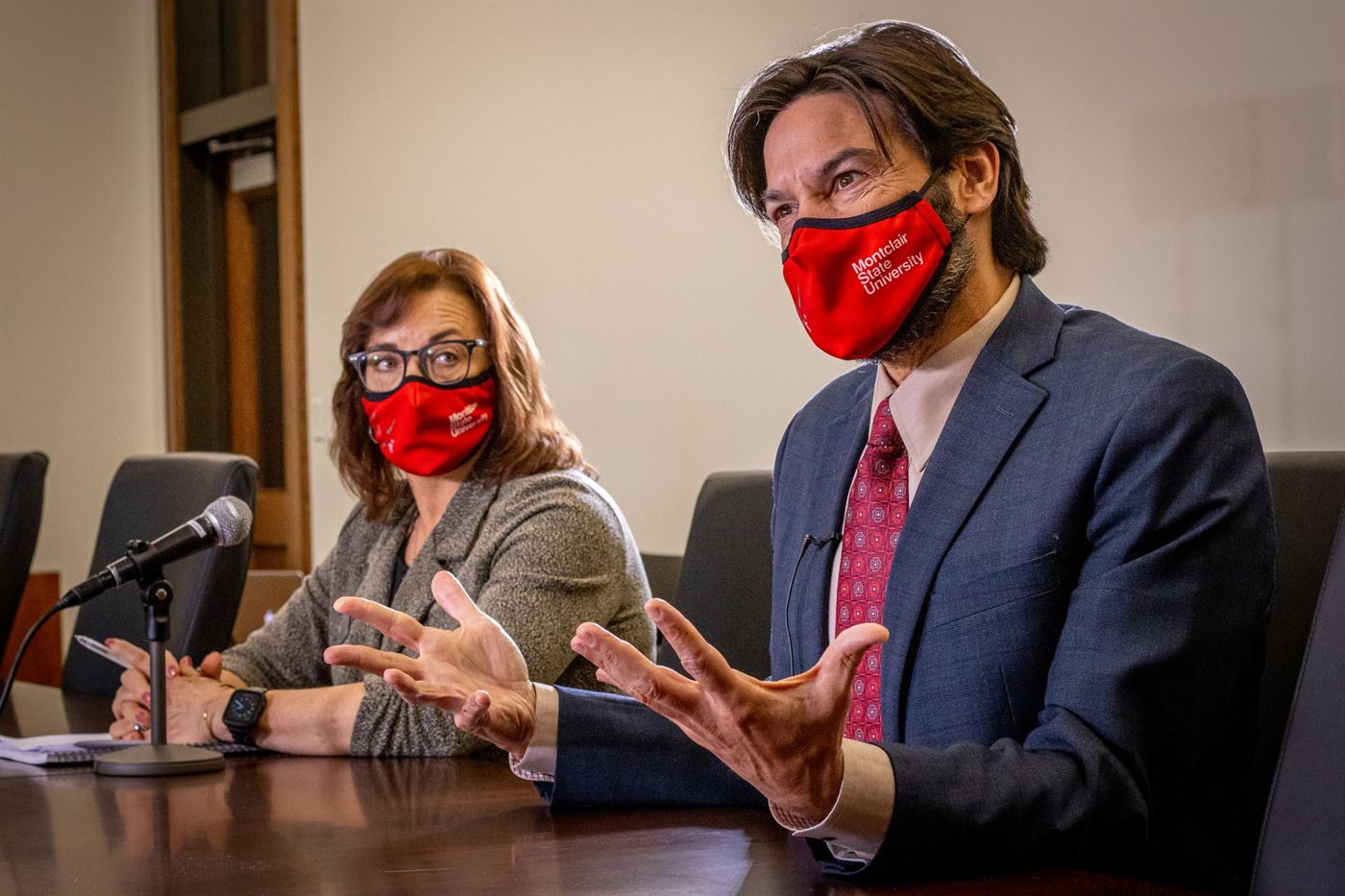- Dr. Jonathan Koppell said increasing inflation has made the cost of tuition more complicated.
- With people being turned away from CAPS, Dr. Dawn Soufleris says they are trying to hire more people but are having difficulty doing so.
- They are looking at adjusting the mask policy and assessing when it is the right time to make the change.
- Montclair State has not spent any money on Bloomfield College but will act as a safety net.
Montclair State University President Jonathan Koppell and Vice President for Student Development and Campus Life Dawn Soufleris answered the questions the student body wants to know in an interview held with the university’s student media organizations.
Koppell began by sharing his outlook on the spring 2022 semester so far.
“I’m excited about everything that’s going on,” Koppell said. “What’s happening is what I hoped would happen: the level of activities have really increased.”
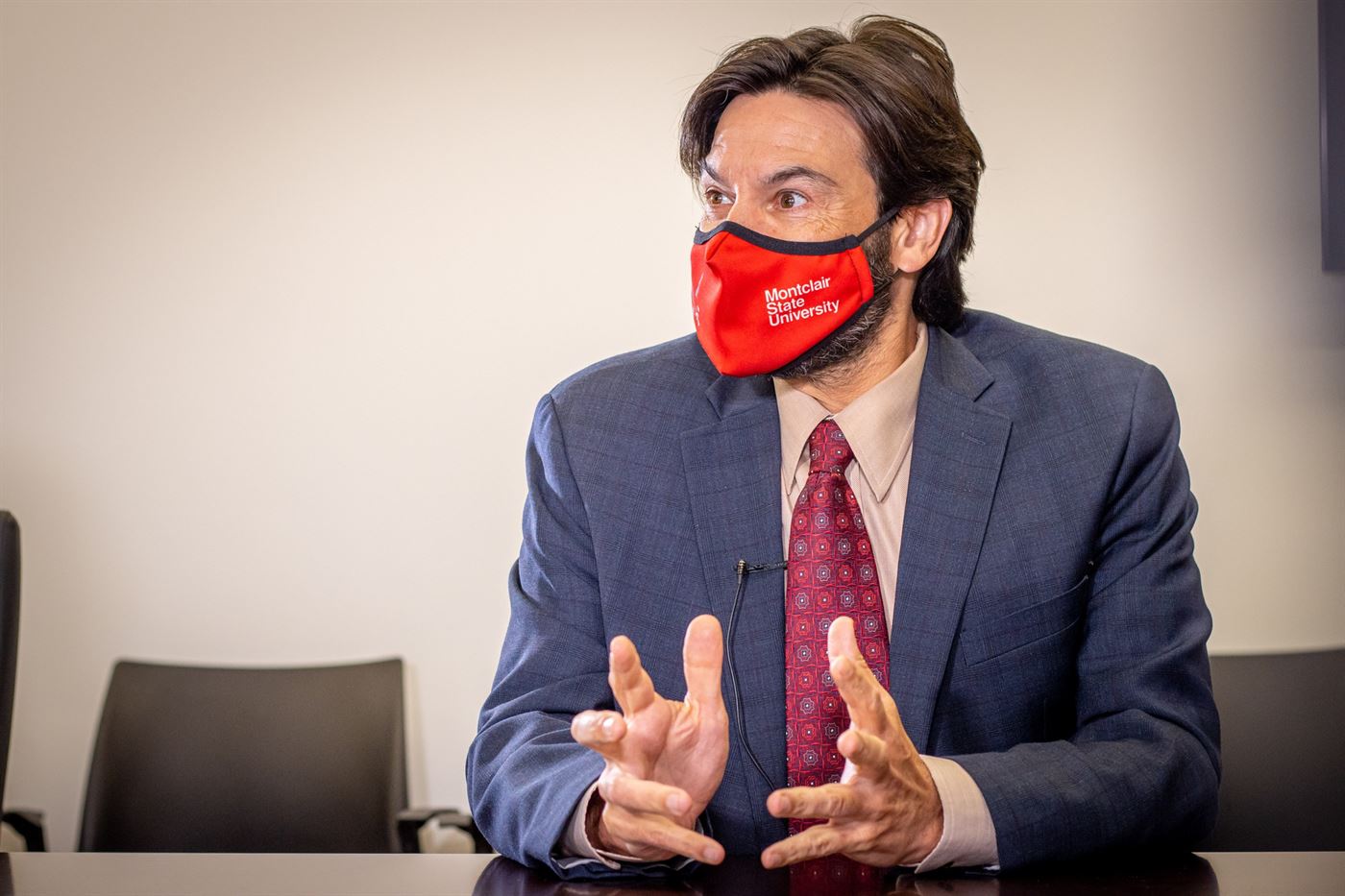
Koppell explains the reason behind the nationwide increase in college tuition over the last two decades.
John LaRosa | The Montclarion
A big question that students are curious about is if tuition prices will increase and if it will remain affordable for all. Koppell said increasing inflation has made this topic more complicated.
“It’s a huge issue,” Koppell said. “We’re going to have a presentation coming up with the board of trustees where we will be talking about this and I’ll be presenting some information on the cost of attending Montclair [State], just so students have some context.”
Despite this, Koppell said the tuition at Montclair State is one of the lowest in New Jersey.
“The amount of money we spend per degree at Montclair [State] is lower than anybody,” Koppell said. “And we do that by having an incredibly lean organization where we have fewer people working per student than pretty much anybody.”
Mental health continues to be a big issue among college students, especially after the coronavirus (COVID-19) pandemic. Montclair State’s Counseling and Psychological Services (CAPS) does offer resources to students but are facing a shortage of staff, and students are being turned away as a result.
“When we talk about changing expectations, that’s probably at the top of the list,” Koppell said. “This isn’t a Montclair [State] thing. It is a higher education thing. Students come to college campuses expecting to need those services.”
Koppell said this not an issue he wants to shy away from as it is a part of the university’s responsibilities.
“This is a real area of evolution for the university,” Koppell said. “And we’re ready to step up and meet but it’s not easy.”
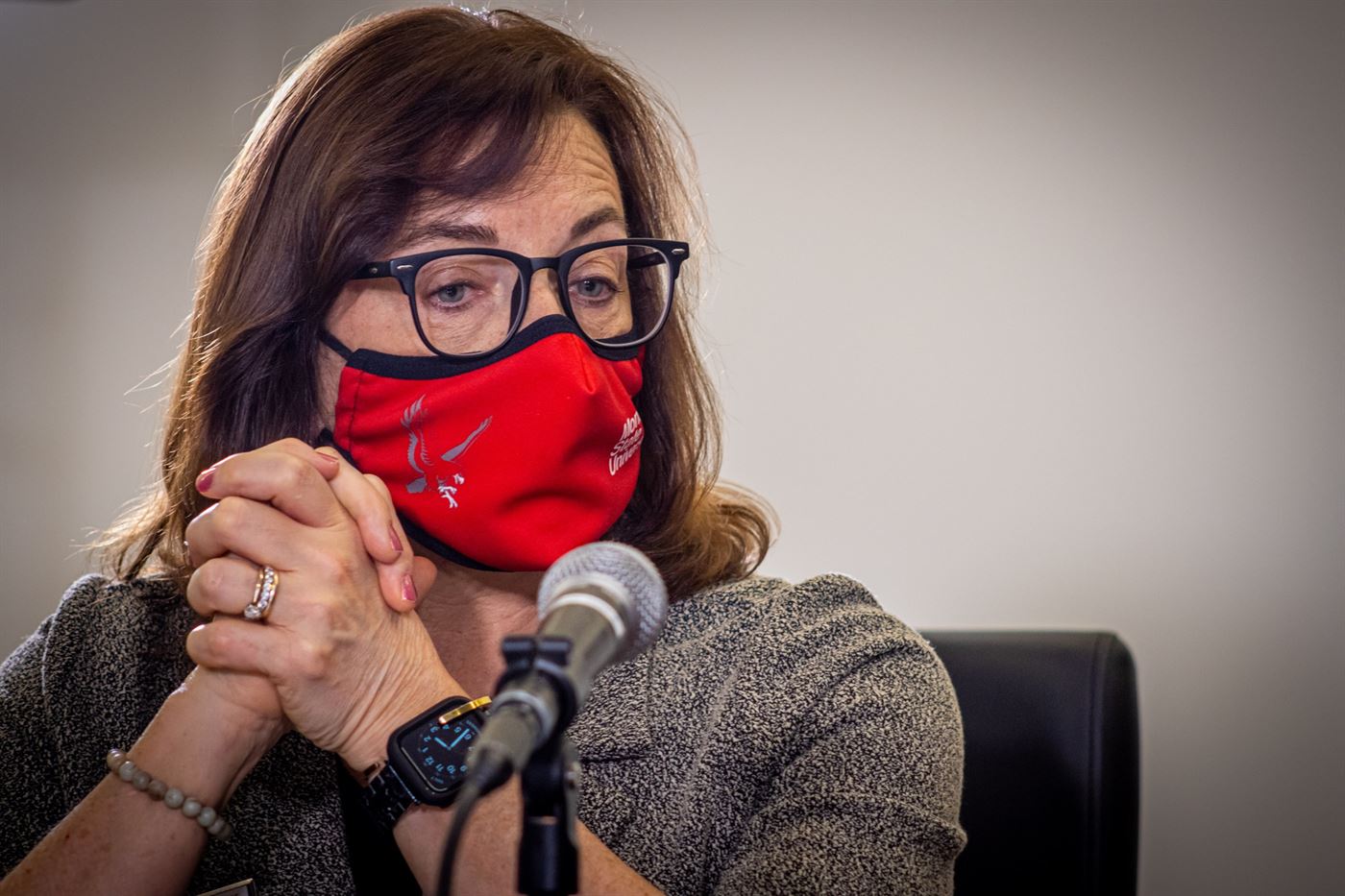
Soufleris said they are trying to hire more people for CAPS but are having difficulty doing so.
John LaRosa | The Montclarion
Soufleris explained that the biggest challenge is finding people to hire. There are many available positions and the university is currently in the interviewing process to fill them.
“We’re having difficulty filling these positions,” Soufleris said. “It’s not because this isn’t a great place to work. It’s not because we can’t pay. People in this field feel very much burnt out because of the pandemic. It’s hard to be a counselor during these times.”
By now, many students are experiencing COVID-19 fatigue and seeing other campuses relieve their students of mask policies. Montclair State students are wondering when it’s their turn.
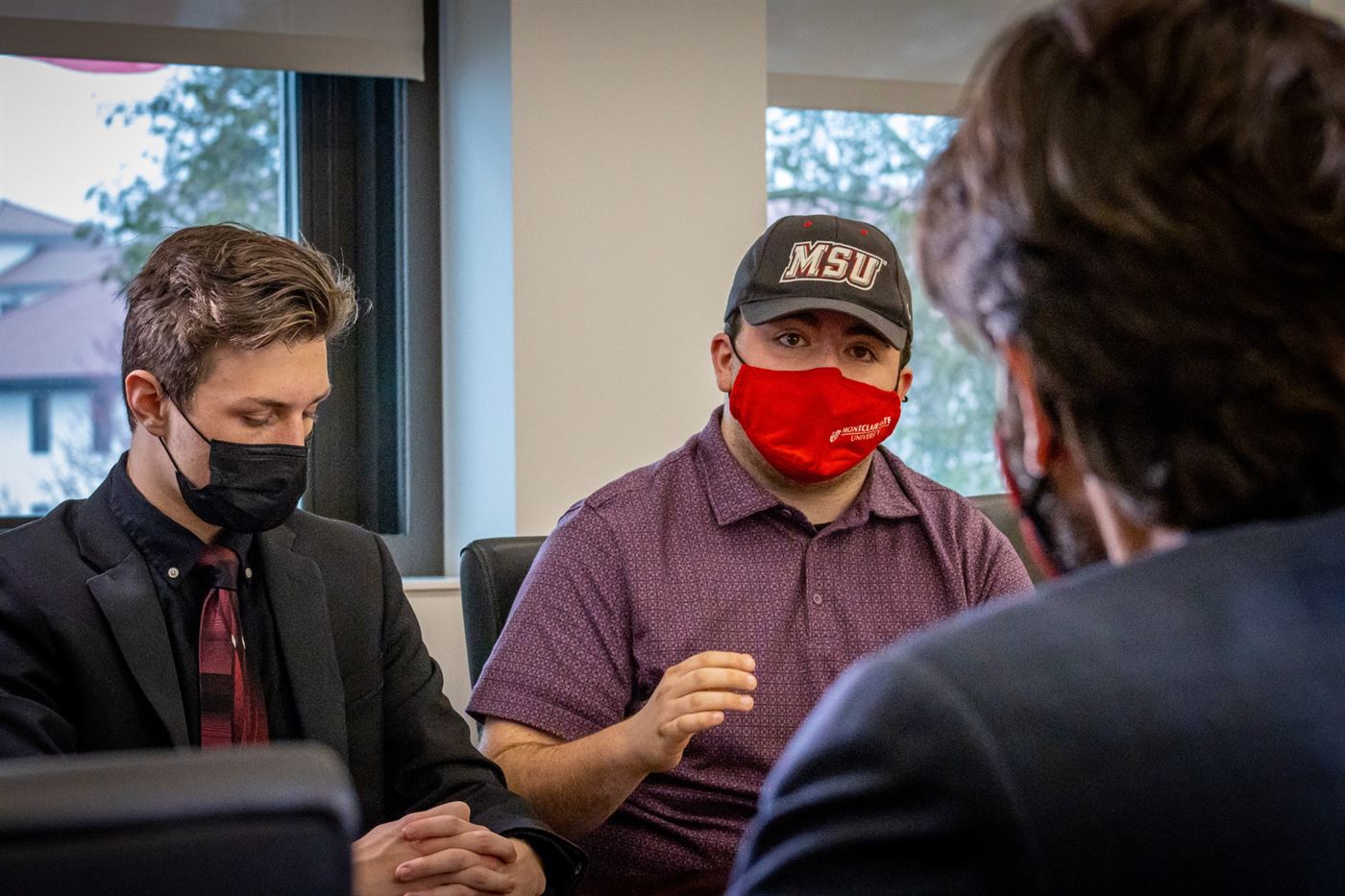
Louis Biondolillo (middle) of Montclair News Lab speaks to Koppell (right).
John LaRosa | The Montclarion
Koppell is looking at adjusting the policy and assessing when it is the right time to make the change.
“I recognize the environment is changing,” Koppell said. “I want to do it at a time when I feel confident because I don’t wanna take it back a few days later.”
The university is talking with on-campus experts along with public health agencies to see what direction to go in.
“The funny part is when you think everything points in one direction, you get some data that points in another,” Koppell said. “And my sense is what has frustrated people the most over the last couple years that we have been dealing with [COVID-19] is that you get one strongly worded expert opinion that this is our decision and then a week later you get the opposite from the same people.”
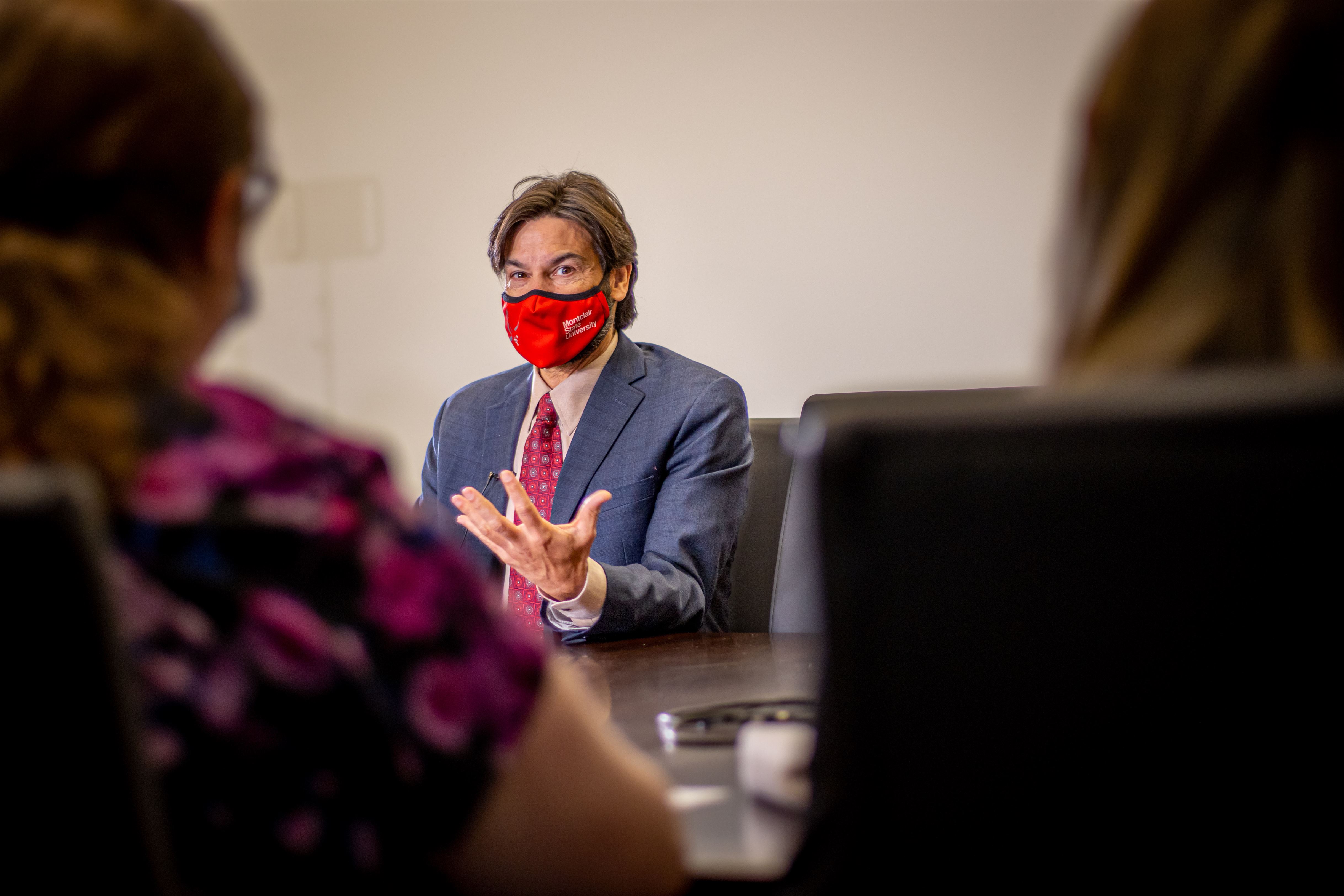
Koppell looks toward Jenna Sundel (left) and Erin Lawlor (right) while speaking about student mental health.
John LaRosa | The Montclarion
Koppell also addressed Montclair State’s new partnership with Bloomfield College. He said he wanted to help Bloomfield College because their mission closely aligns with Montclair State’s mission.
“Bloomfield College is a private university since it is not funded by the state of New Jersey in the same way that we are, but it has a public-serving mission since it is creating pathways for students who are underserved by any other institutions,” Koppell said.
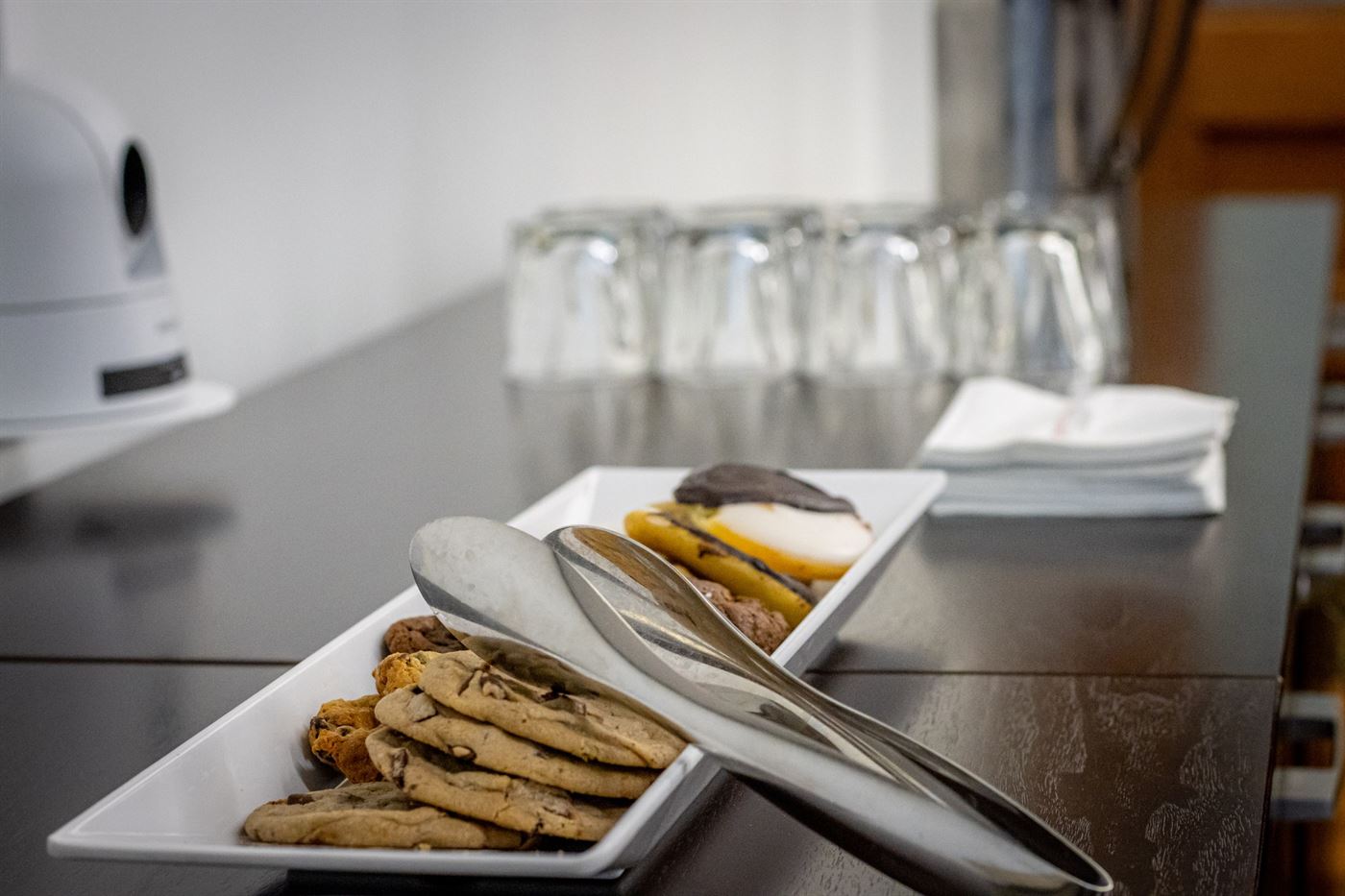
Cookies and refreshments on a table next to the entrance of the conference room.
John LaRosa | The Montclarion
Koppell added that helping Bloomfield College has not put the university in a weaker spot in any way, and the money is just there to be a safety net if they ever are in trouble.
“We haven’t spent a nickel,” Koppell said. “What we did was create, in some sense, a financial safety net for Bloomfield College, so that if in the incoming years they run into a cash flow problem they can draw on our university, up to a point, about $7 million. And if they do that, it is a loan secured by real estate asset.”
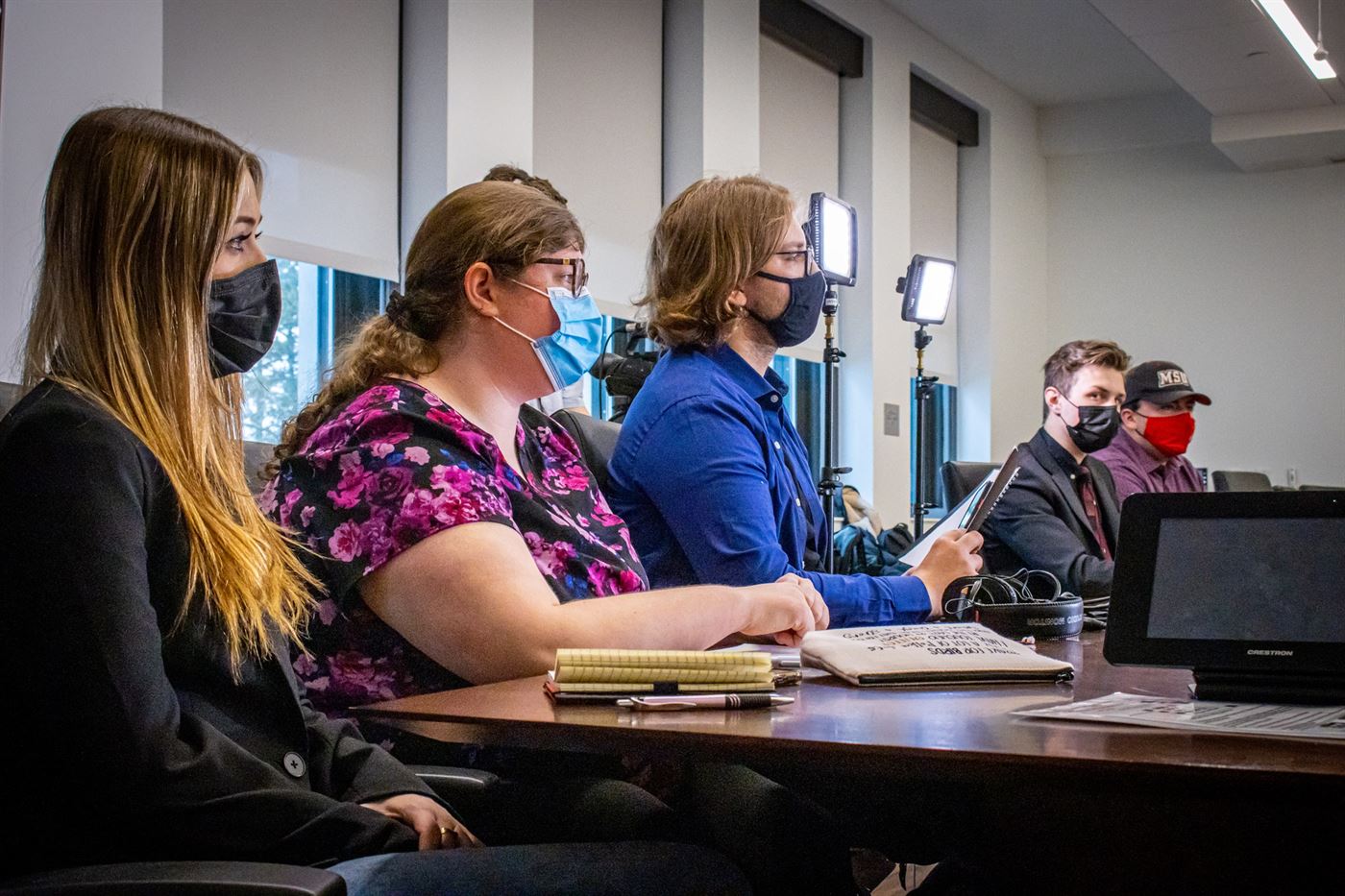
(Left to right): Erin Lawlor, Jenna Sundel, Ben Petruk, Matt Bruchez and Louis Biondolillo in a meeting with Koppell and Soufleris in Dinallo Conference Room inside Cole Hall.
John LaRosa | The Montclarion
Koppell explained that this is a big win for the Montclair State community.
“You have higher education now evolving, growing, redesigning itself to better serve its purpose, just to create educational pathways just for people who are often left behind in the current higher education landscape,” Koppell said.

